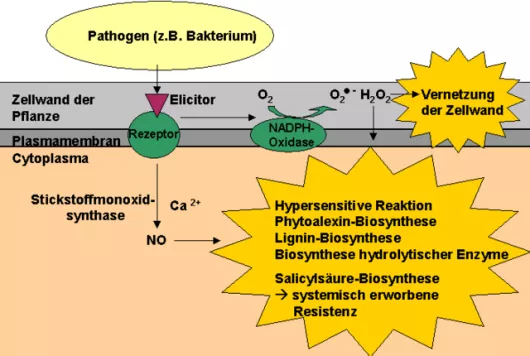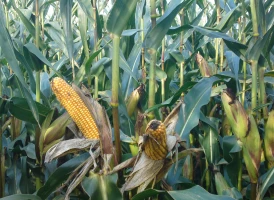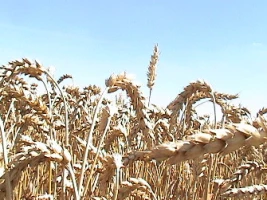Agricultural applications
Chitosan oligomers as elicitor for plants
BioLog Heppe has been actively employing chitosan oligomers as plant biostimulants for over 15 years. Selected, highly potent chitosan oligomers, that promote higher plant yields and help maintain the plant's physiological health, are produced through a patented process.
The plant's reaction to the oligomers can be compared to a vaccine, as the chitosan oligomer's similarity to pathogenic fungi can trigger, through proper dosage, a defensive auto-immune reaction by the plant. Unlike an actual fungal attack, the chitosan oligomer does not cause a hypersensitive reaction, which would lead to cell decay and death, but instead it promotes biosynthesis.

Finding an explanation for the effects of chitosan oligomers on various plant species, as well as plant varieties, is the aim of BioLog Heppe's research, which is performed through a variety of R&D projects.
The best and most reliably reproducible results were achieved in dry soils, with precipitation levels below 600 mm / year and with plants which retain a large portion of their original, wild type genetic code.
Chitin as a soil amendment
Aside from chitosan, the application of chitin in agriculture is highly interesting. The main agricultural use of chitin is as a soil amendment. Chitin degrading microorganisms settle in treated soils producing enzymes (chitinases). These chitinases can attack phytopathogenic fungi and nematodes.
BioLog Heppe GmbH supports the research and experiments of several universities and institutes investigating the application of chitin in agricultural soils. An example was our work with the University of Gent and the ILVO in Belgium, who studied the influence of chitin, as a soil amendment, on the growth of lettuce and the soil's microbiology:
http://journal.frontiersin.org/article/10.3389/fmicb.2016.00565/full




